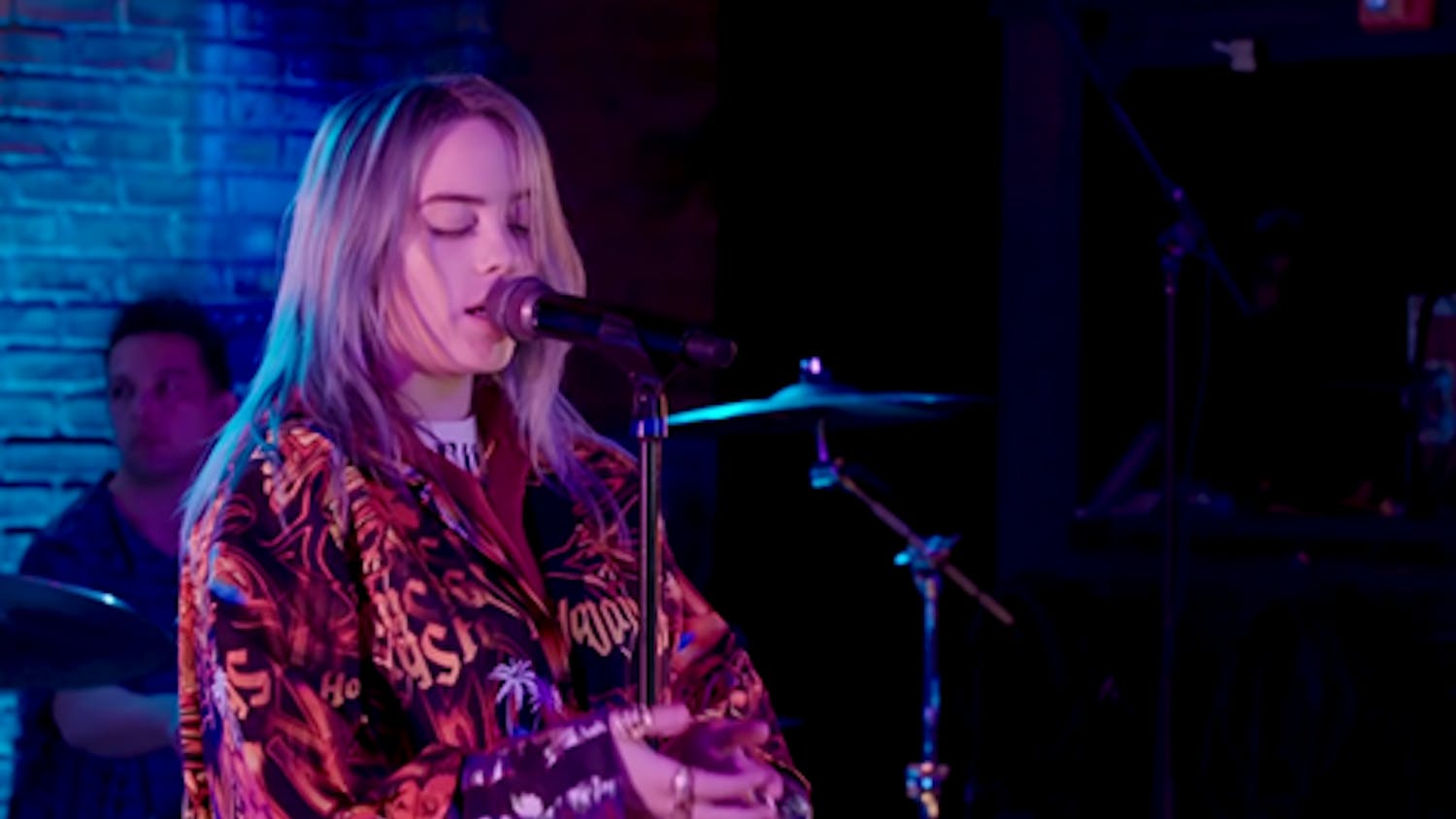The identity of the musician has always been intertwined with the identity of the struggling soul. Some would argue that one has to be sad to make good art. This notion has been prevalent ever since people began admiring artists such as Pablo Picasso; pain was energy, an energy that could be used to create beautiful imagery for less tortured individuals.
Finding a pop song from the last century with lyrics not pertaining to love is a tougher feat than it would first seem. From The Beatles’ “I Want to Hold Your Hand” to Carly Rae Jepsen’s new song, “When I Needed You,” contemporary pop music has always relied on lyrics that describe characters who are incomplete without their significant other. Songs that describe a utopic relationship or lifestyle come off as impersonal and tacky, which is why country songs about the high school quarterback star kissing the prom queen cause the majority of the population to roll their eyes in disgust.
But while a love and emotion-focused climate has dominated music for the last century, the grip on its reign is loosening. The cultural acceptance of dance music combined with the new inventions of electronic instruments are establishing the fact that musicians don’t have to be depressed to make good music.
An acoustic guitar is only capable of making so many sounds. In fact, it’s capable of making only one sound, that being a string plucked, in different notes. A masterful guitarist can make chords that can cause a heart to stir, but their world of possible sounds is much smaller than that of a person with an electric guitar. Now distortion, looping and other worldly modulations are thrown into the mix.
The electric guitar’s far-reaching experimentation was reserved for the estranged avant-garde musicians who continued to suffer for the sake of amazing music. Bands such as Sonic Youth, The Pixies and Mercury Rev took depression and distorted it to the point where it was almost unrecognizable, yet still there.
It wasn’t until synthesizers busted through the world of modern music that songs began to serve a purpose beyond digging through our hearts to reap our precious feelings. Kraftwerk stands as the ultimate example, a defining band of modern pop music. As songs such as “The Robots” suggested, their music was not of the same raw human core off of which artists before them had built their sound. The very essence of Kraftwerk’s robotic sound embedded itself in pop culture, creating a culture of dance music made to audially stimulate its listeners as well as, or instead of, filling them with emotions.
The moment pop music moved to an industrial, technology-driven sound, love music was doomed. Creating music electronically was as much about experimentation as it was about emulating the artist’s feelings, if not more. An industrial clang in a modern dance track is more striking than a weepy chord from a guitar, because the former sound might not have ever existed in music before a producer discovered the technique to create it on a program.
Producers in general are breaking from the tradition of melodramatic musicianship. The time of a producer is spent more like a professional gamer wired into the Internet than of a free-roaming spirit. Helix, a producer from the futuristic dance label Night Slugs, described in an interview the process in which he hacked into Unreal Engine, a program which helped render video games such as Gears of War and Bioshock. He snatched samples and imported them into his standard music program Renoise. If rock music broke down society into the raw human emotion on which the society was founded, then electronic music is breaking it down to the new basis of the digital world: ones and zeros.
There is still a place in the new world of music for the heartbroken, albeit not in the spotlight of popular music. Bedroom pop is a genre that combines intimate house shows with home recordings to get a more personal feeling that any major record label would be able to achieve. New songs for those wanting to feel unprecedented sadness are out there, you just have to look a little more to find a nuanced experience.
Emotions can also dwell in electronic music and discover shelter in unconventional places. Parallel Memories by Mr. Mitch pitches up R&B samples so that the original vocalists take on the role of digitized fairies lamenting over lost lovers. While the London grime producer did have to borrow from the past to achieve this effect, his work stands as an example of electronic music’s ability to resonate with its listeners emotionally, albeit in a manner different from analog rock.
In a world where it has become a sign of empowerment to cast love aside and make a meaningful life on one’s own, love music has fallen to genres that empower individuals over couples. Trap songs nail the idea over and over again that money and success mean more than sticking around with one person and settling down. Dej Loaf’s single “Back Up” has her rapping about the desire to be with men who can operate independently from her and don’t shower her with meaningless gifts. In popular culture, it’s cooler to disregard emotions rather than own up to them, which, with the dehumanizing power of electronic music, has created an atmosphere of emotional independence and desensitization.
Some might argue that being in touch with our misery is healthy, which may very well be true. To live in a society where individuals front on social media about how together their lives are is detrimental to those looking for an outlet for their own worries and self-deprecations. Our emotions aren’t changing, but how we deal with them is rapidly evolving with our technological society. Instead of seeking out songwriters who share our sentiments through lyricism, Millennials go to clubs in hopes of finding others who are actively rebelling against the feelings with which they’re plagued. Older music lovers might scorn the younger generation for their love of impersonal electronic music, but that’s what makes it so alluring in the first place.






